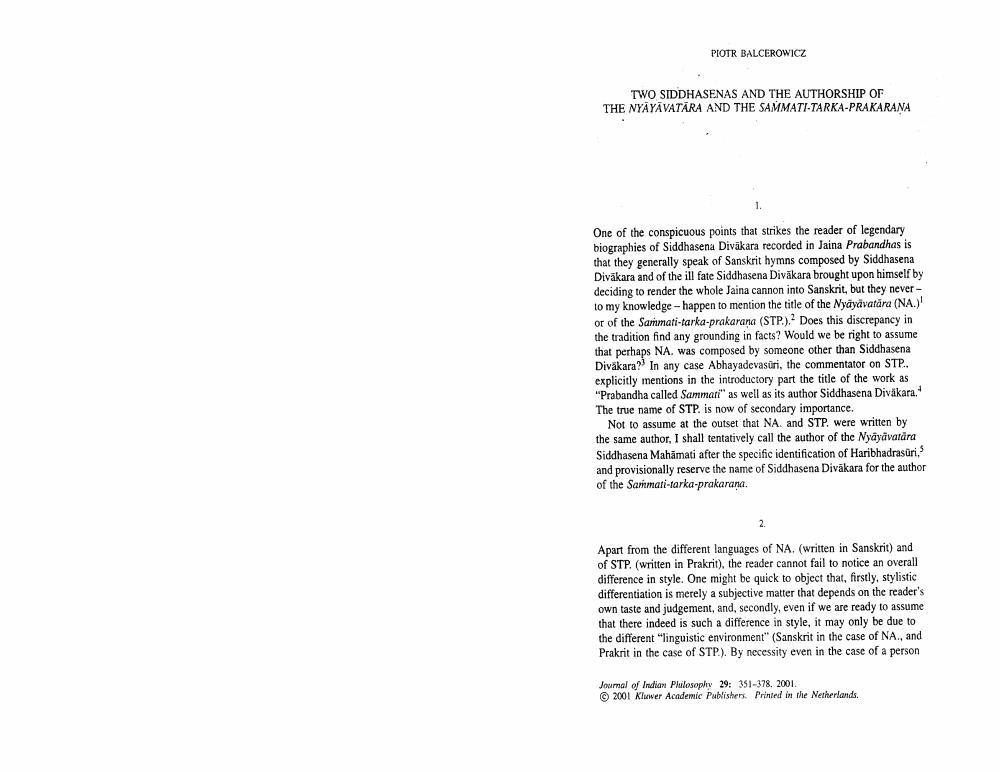Book Title: Two Siddhasenas And Authorship Of Nyayavatara And Sammati Tarka Pprakarana Author(s): Piotr Balcerowicz Publisher: Piotr Balcerowicz View full book textPage 1
________________ PIOTR BALCEROWICZ TWO SIDDHASENAS AND THE AUTHORSHIP OF THE NYAYAVATARA AND THE SAMMATI-TARKA-PRAKARANA One of the conspicuous points that strikes the reader of legendary biographies of Siddhasena Divakara recorded in Jaina Prabandhas is that they generally speak of Sanskrit hymns composed by Siddhasena Divakara and of the ill fate Siddhasena Divākara brought upon himself by deciding to render the whole Jaina cannon into Sanskrit, but they neverto my knowledge -- happen to mention the title of the Nydydatára (NA) or of the Sarmati-tarka-prakarana (STP.). Does this discrepancy in the tradition find any grounding in facts? Would we be right to assume that perhaps NA. was composed by someone other than Siddhasena Divakara? In any case Abhayadevasüri, the commentator on STP.. explicitly mentions in the introductory part the title of the work as "Prabandha called Sammari" as well as its author Siddhasena Divakara." The true name of STP. is now of secondary importance. Not to assume at the outset that NA. and STP. were written by the same author, I shall tentatively call the author of the Mydydvatora Siddhasena Mahāmati after the specific identification of Haribhadrasuri.! and provisionally reserve the name of Siddhasena Divakara for the author of the Sarmati-tarka-prakarana. Apart from the different languages of NA. (written in Sanskrit) and of STP. (written in Prakrit), the reader cannot fail to notice an overall difference in style. One might be quick to object that, firstly, stylistic differentiation is merely a subjective matter that depends on the reader's own taste and judgement, and, secondly, even if we are ready to assume that there indeed is such a difference in style, it may only be due to the different linguistic environment" (Sanskrit in the case of NA., and Prakrit in the case of STP.). By necessity even in the case of a person Journal of Indian Philosophy 29: 351-378. 2001. © 2001 Kluwer Academic Publishers Printed in the Netherlands.Page Navigation
1 2 3 4 5 6 7 8 9 10 11 12 ... 14
